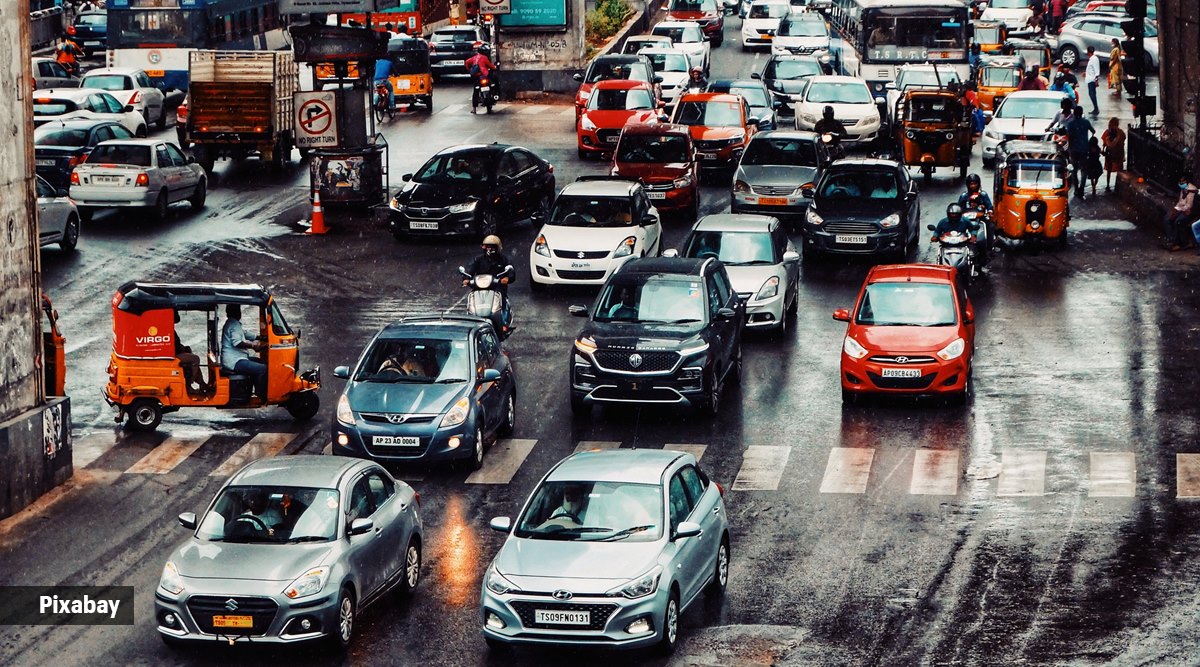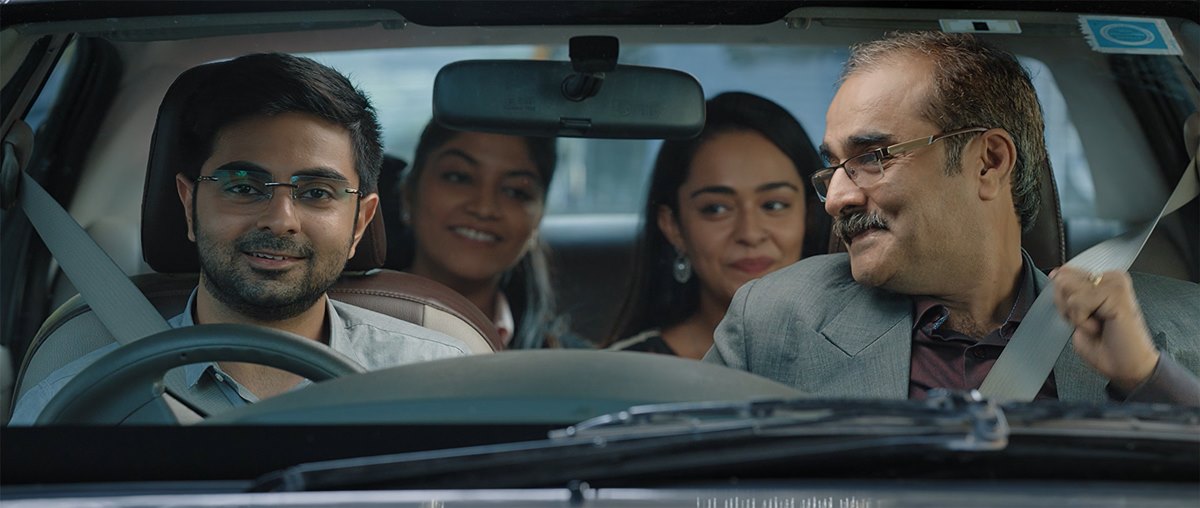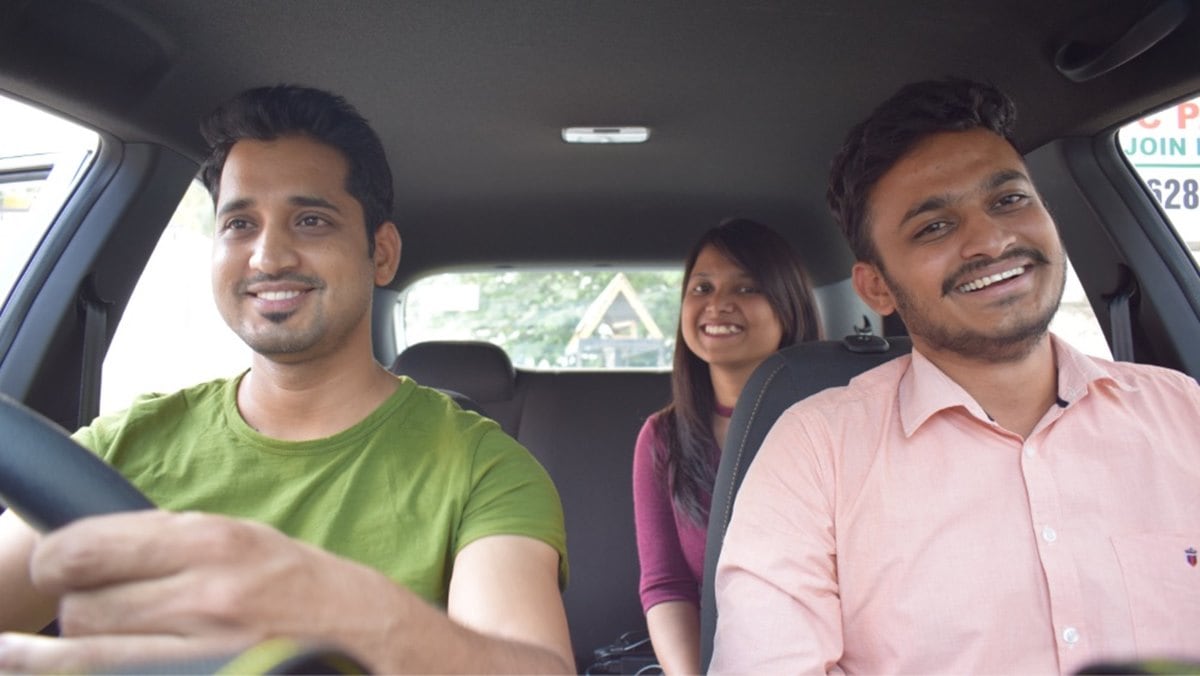 From economic to environmental - the benefits of carpooling are severalfold (Source: Pixabay)
From economic to environmental - the benefits of carpooling are severalfold (Source: Pixabay)With most offices across the country opening gradually, albeit, in a hybrid model, people have once again found themselves in the regular rut of commuting to and from their offices. As such, did you know that Indians spend more time on daily office commute than people in most countries in the world? According to a 2019 report by MoveInSync, an office commute platform, Indians spend seven per cent of their day commuting to their offices. Infamous for its heavy traffic, Bengaluru suffers the worst as the residents of this city lose 243 hours on average every year on the roads due to traffic, according to TomTom’s 2020 study.
These statistics are a result of the increasing number of vehicles on the road, especially during peak office timings. They not just significantly increase one’s time on the road but also contribute to the rise of carbon emissions and depletion of fuel. To manage this grave condition, the idea of carpooling comes into play!
What is carpooling?
Subscriber Only Stories
Simply put, carpooling refers to car journeys in which multiple people, with the same destination, travel together. While some form groups who regularly travel to a particular destination, others rely on automated apps that help them find real-time carpooling availability in a vehicle travelling to their desired destination.
While carpooling is a common concept in other countries, it is still not technically legal in India which makes a clear demarcation between transport and non-transport vehicle, disallowing people to make profits with their personal cars.
Currently, some carpooling services in the country such as Quickride, RideAlly and Lift Lelo allow people to share cars when travelling to a similar location in major corporate cities such as Bangalore, Delhi NCR, Mumbai and Pune.
How does it work?
Explaining the concept in detail, KNM Rao, Founder and CEO, Quickride, said, “It’s a carpooling network where people working in a similar area can get connected in real-time and share their vehicles. The carpool giver and taker are two roles. One day, I could be a carpool giver and could be a carpool taker, on another day. The application helps rotate this carpooling behaviour.”
 There are several apps offering carpooling services in India (Source: Quickride)
There are several apps offering carpooling services in India (Source: Quickride) Quickride, which started in 2015 after Rao saw several of his colleagues travelling to and from similar locations, automated the process of connecting people in real-time as opposed to manually looking for them. “There were many apps then too, but, they didn’t succeed much because it was not happening in real-time and was inconvenient for passengers. Another issue was how to rotate carpooling. If it has to scale, a point system was needed which could count the contribution and do automatic rotation. We eliminated all manual interventions, making it convenient and fully automated,” he said.
On the other hand, Lift Lelo, a WhatsApp-based carpooling aggregator, connects people who want lifts to people who are willing to give lifts. “Before 2017, I was in the UK where we used to do carpooling. There used to be a separate lane for those carpooling and it was toll-free. When I came to Mumbai, my office was in Lower Parel and I used to stay in Navi Mumbai. The travel was cumbersome. So, I found a couple of people travelling the same route so that we could use our cars alternatively and travel together. Eventually, we decided to spread this across Mumbai and founded Lift Lelo,” Shailesh Dubey, Founder, Lift Lelo told indianexpress.com, on his idea behind starting his carpooling aggregating service.
Benefits of carpooling
From economic to environmental – the benefits of carpooling are severalfold. Everyone benefits from carpooling – the lift takers and the giver, say the carpooling service providers. Explaining the same, Rao added, “The fuel expenses come down considerably when one does carpooling as you don’t take your car every day.”
Agreed Dubey and said, “There’s a considerable reduction in fuel expense when one travels with other riders. By sharing one’s car, they can save cost and riders can also travel much more economical as compared to travelling in a cab.”
Notably, According to a 2017 study titled ‘Traffic congestion and long driving hours‘, Traffic congestion lead to greater emotional health effects; mostly stress (80.4%), nervousness (74.2%), and aggressiveness (52.2%); whereas long driving hours lead to greater physical health effects; mostly back pain (66.8%), pain in the legs (56.7%), headaches (43.3%), and dizziness (28.8%). As such, carpooling not only saves your time due to reduced traffic burden but also helps aid your mental and physical wellness.
The positive impact of carpooling on the environment is worth paying attention to. “The number of cars gets reduced on the road leading to a decline in carbon emissions and the fuel used – which is a diminishing natural source,” service providers explained.
One of the least-talked-about aspects of carpooling is how it aids social and official interactions which could prove beneficial in the long term. Rao elucidated, “Carpooling also helps build connections as everybody would meet many new people every month which they otherwise would not.”
Not just employees but companies, too, benefit immensely from carpooling services as many businesses rent additional parking spaces to keep up with the number of cars. “Carpooling helps companies save parking space. Many companies have measured and told us that they could save almost 15 per cent of parking space,” Rao shared.
Pandemic and carpooling
While a number of carpooling startups inundated the market before the pandemic, hardly a few players are still operating. Like most industries, carpooling, too, faced a massive hit as work shifted online and roads were empty. “Before the pandemic, we were working with a few corporates and it was going fine, if not great. But now, it has completely stopped. We may resume carpooling services after six months, once all the offices reopen and people are open to sharing their cars. Covid-19 has changed the entire paradigm,” said Hariprakash Agrawal, Founder and CEO, RideAlly.
Calling carpooling an unsustainable model currently, he added, “Major carpools happen for big corporate but companies haven’t completely reopened after the pandemic. I am not optimistic about it for at least a year now.”
 Many still don’t know what carpooling is, service providers note (Source: Quickride)
Many still don’t know what carpooling is, service providers note (Source: Quickride) Quickride, too, faced something similar as the number fell down from 60,000 carpooling rides in Bangalore every day pre-pandemic to a few thousand now. “With companies reopening, it is picking up but not like before. The fear of contracting the Covid-19 virus makes many not want to share their vehicles with unknown people,” Rao said.
Roadblocks
Despite its many benefits on several fronts, carpooling struggles to become a mainstream mode of commute among office-goers. According to service providers, government policies and lack of awareness are to be blamed.
Agrawal said, “Government doesn’t allow people to make money from their personal vehicles. As such, government policies are not really incentivising carpooling. It is not giving any confidence to a carpooling company to take risks. Unless government allows people to earn money or save costs by sharing rides, it’s not going to pick up.” Agreed Dubey who believes that the government needs to boost carpooling in the country.
Citing a lack of awareness among people, he added, “Many still don’t know what carpooling is. They think it works like Ola/Uber cab which picks and drops you. There’s a lack of awareness about it.”
To bridge this gap, Rao shared that he launched several ‘Go Green Carpooling Awareness‘ campaigns in various corporates in Bangalore. “We used to clear the apprehensions of the people about carpooling and encouraged them for it,” he said.
📣 For more lifestyle news, follow us on Instagram | Twitter | Facebook and don’t miss out on the latest updates!
- The Indian Express website has been rated GREEN for its credibility and trustworthiness by Newsguard, a global service that rates news sources for their journalistic standards.

